LIGO Gravitational Wave Chirp - Chirp Pattern Of Gravitational Waves Detected By LIGO On September 14,
LIGO Gravitational Wave Chirp - Chirp pattern of gravitational waves detected by LIGO on September 14, 2015. Credit: LIGO http://www.ligo.org/
More Posts from Intergalacticnerd and Others




This is the coolest outer space animation ever. It shows the Crab Supernova explosion, happened in 1054, and its evolution into the remnant it is now - called the Crab Nebula. Basically a thousand years speeded up into less than a minute.
Modern understanding that the Crab Nebula was created by a supernova, an explosion of a massive supergiant star, dates to 1921 when Carl Otto Lampland announced he had seen changes in its structure. This eventually led to the conclusion that the creation of the Crab Nebula corresponds to the bright SN 1054 supernova recorded by Chinese astronomers in AD 1054. There is also a 13th-century Japanese reference to an appearance of a new or “guest” star in Meigetsuki. It was then so bright it was visible during the daytime for 23 days.
animation credit: ESA/Hubble (M. Kornmesser & L. L. Christensen)
How do you feel about space movies like Gravity or the Martian etc?
I thought they were great. I watched them both here aboard the International Space Station. Movie night looks like this!

Are u really in space
Yes. Really. And now I am in space over New Orleans…and now I’m over Mobile, Alabama.

Black Holes are not so Black (Part 3) - Gravitational Waves
The existence of Gravitational Waves have been confirmed. But you probably have heard that. In this post, we will break down this profound discovery into comprehend-able chunks.
This is going to be a amazing journey. Ready ?
Redefining Gravity
When we usually talk of Gravitation we are bound to think like Newton, where objects are assumed to exerting a force upon each other.
Like imaginary arrows of force in space. But this picture, although good for high school crumbled, with the advent of Einstein’s theory of Relativity.

What is the Space-Time Fabric?
Think of space-time fabric as an actual cloth of fabric. ( An analogy )
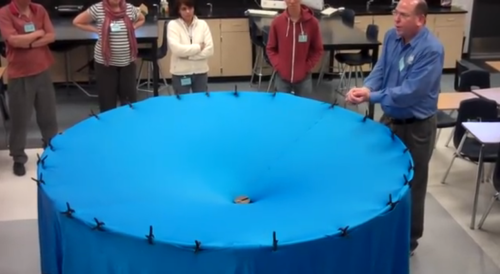
When you place an object on the fabric, the cloth curves. This is exactly what happens in the solar system as well.

The sun with such a huge mass bends the space-time fabric. And the earth and all the planets are kept in orbit by following this curvature that has been made by the sun.
Attributing to the various masses of objects, the way they bend this fabric also varies.
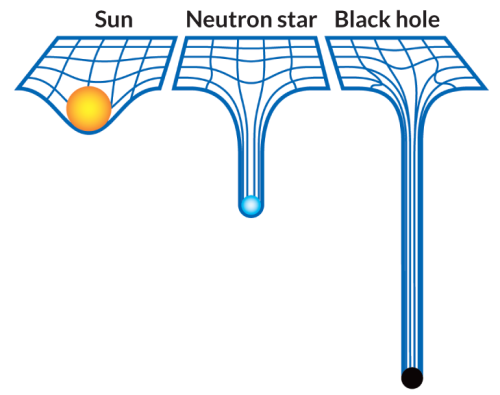
What are Gravitational Waves?
If you drop an object in a medium such as water, they produce ripples that propagate as waves through the medium.

Similarly, Gravitational waves are ripples in space-time fabric produced when you drag heavy objects through space time.
And the nature of these waves is that they don’t require a medium to propagate.
How do you make one?
Everything with mass/energy can create these waves.

Source
Two persons dancing around each other in space too can create gravitational waves. But the waves would be extremely faint.
You need something big and massive accelerating through space-time in order to even detect them.

And orbiting binary stars/black holes are valuable in this retrospect.
How can you detect them?
Let’s turn to the problem to detecting them assuming you do find binary stars/black-holes in the wondrous space to suite your needs.
Well, for starters you cannot use rocks/ rulers to measure them because as the space expands and contracts, so do the rocks. ( the distances will remain same in both the cases )

Here’s where the high school fact that the speed of Light is a constant no matter what plays an important and pivotal role.
If the space expands, the time taken for light to reach from A to B would be longer. And if it contracts, the time taken for it to reach from A to B would be smaller.

PC: PHDComics
By allowing the light waves from the contraction and expansion to interfere with each other, such as done in any interferometry experiment we can detect the expansion or contraction. Voila!
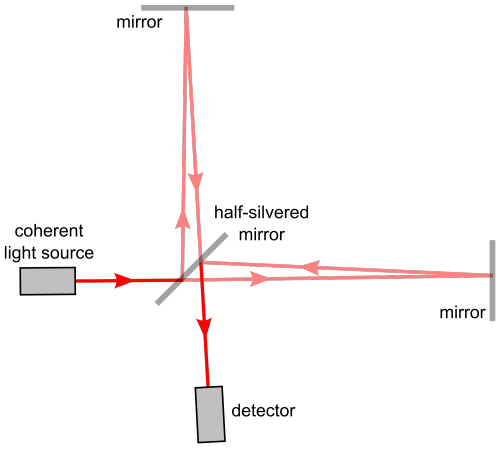
And this is exactly what they did! ( on a macroscopic level ) at LIGO (Laser Interferometer Gravitational-Wave Observatory)
14 September 2015

Two Black Holes with masses of 29 and 36 solar masses merged together some 1.3 Billion light years away.
Two Black Holes colliding is the header animation of the ‘Black Holes are not so Black Series’, in case if you haven’t noticed.

The merger of these two black holes results in the emission of energy equivalent to 3 solar masses as Gravitational Waves.
This signal was seen by both LIGO detectors, in Livingston and Hanford, with a time difference of 7 milliseconds.
And with the measurement of this time difference, physicists have pronounced the existence of Gravitational Waves.
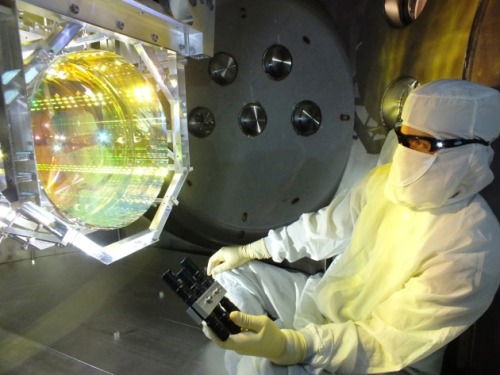
Source
All this is most certainly easily said than done and requires meticulous and extensive research, not to mention highly sensitive instruments.
Had they not have measured this time difference, we might have had to wait for the merger for more massive black holes to collide and maybe even build more sensitive instruments to detect these waves.
And Einstein predicted this a 100 years back!
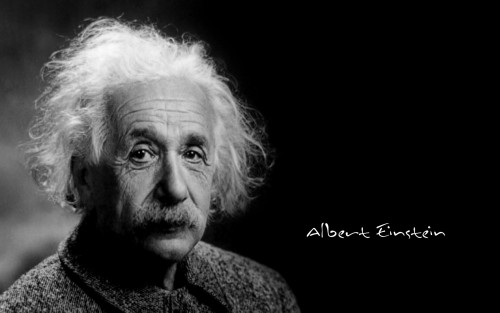
Mind Blown!
Note: Hope you are able to understand and appreciate the profundity of the discovery done by mankind.
** All animations used here are merely for Educational purposes. If you have any issues, please write to us at : [email protected]

Pluto’s heart
This high-resolution image captured by NASA’s New Horizons spacecraft shows the bright expanse of the western lobe of Pluto’s “heart,” or Sputnik Planitia, which is rich in nitrogen, carbon monoxide and methane ices.
Credit: NASA/JHUAPL/SwRI




NGC 660. A rare galaxy type, polar ring galaxies have a substantial population of stars, gas, and dust orbiting in rings nearly perpendicular to the plane of a flat galactic disk. Only about a dozen of such galaxies have been discovered
Source: https://imgur.com/z73B8o3
i think the coolest thing would be to see a new color
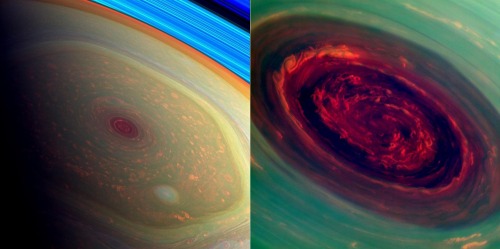
Saturn’s hexagonal storm system in it’s north pole
-
 ravenousvarg-blog reblogged this · 9 years ago
ravenousvarg-blog reblogged this · 9 years ago -
 sufficientlylargen reblogged this · 9 years ago
sufficientlylargen reblogged this · 9 years ago -
 epic-games-official liked this · 9 years ago
epic-games-official liked this · 9 years ago -
 shastabwh liked this · 9 years ago
shastabwh liked this · 9 years ago -
 majorturtlepower liked this · 9 years ago
majorturtlepower liked this · 9 years ago -
 ahegaoforcoffee reblogged this · 9 years ago
ahegaoforcoffee reblogged this · 9 years ago -
 sidrakkon liked this · 9 years ago
sidrakkon liked this · 9 years ago -
 boring-one liked this · 9 years ago
boring-one liked this · 9 years ago -
 painted-allover liked this · 9 years ago
painted-allover liked this · 9 years ago -
 fozfozzington reblogged this · 9 years ago
fozfozzington reblogged this · 9 years ago -
 fozfozzington liked this · 9 years ago
fozfozzington liked this · 9 years ago -
 sunfogo liked this · 9 years ago
sunfogo liked this · 9 years ago -
 critejon-blog reblogged this · 9 years ago
critejon-blog reblogged this · 9 years ago -
 gramofdiamonddust liked this · 9 years ago
gramofdiamonddust liked this · 9 years ago -
 spiritbreathesmagic reblogged this · 9 years ago
spiritbreathesmagic reblogged this · 9 years ago -
 ileanover liked this · 9 years ago
ileanover liked this · 9 years ago -
 quetzacoalt62 liked this · 9 years ago
quetzacoalt62 liked this · 9 years ago -
 cyclingfanatickamp liked this · 9 years ago
cyclingfanatickamp liked this · 9 years ago -
 okan170 reblogged this · 9 years ago
okan170 reblogged this · 9 years ago -
 rachelluv11 liked this · 9 years ago
rachelluv11 liked this · 9 years ago -
 random1-25 reblogged this · 9 years ago
random1-25 reblogged this · 9 years ago -
 biochemhippy liked this · 9 years ago
biochemhippy liked this · 9 years ago -
 reailty reblogged this · 9 years ago
reailty reblogged this · 9 years ago -
 from-random-import-systemrandom reblogged this · 9 years ago
from-random-import-systemrandom reblogged this · 9 years ago -
 tubduckie reblogged this · 9 years ago
tubduckie reblogged this · 9 years ago -
 motherofjudas reblogged this · 9 years ago
motherofjudas reblogged this · 9 years ago -
 motherofjudas liked this · 9 years ago
motherofjudas liked this · 9 years ago -
 icreatemyowndimension-blog reblogged this · 9 years ago
icreatemyowndimension-blog reblogged this · 9 years ago -
 icreatemyowndimension-blog liked this · 9 years ago
icreatemyowndimension-blog liked this · 9 years ago -
 mellanvarld liked this · 9 years ago
mellanvarld liked this · 9 years ago -
 catgirlmadi reblogged this · 9 years ago
catgirlmadi reblogged this · 9 years ago -
 hidonredux liked this · 9 years ago
hidonredux liked this · 9 years ago -
 kleaulynn-blog liked this · 9 years ago
kleaulynn-blog liked this · 9 years ago -
 midautumn-festival reblogged this · 9 years ago
midautumn-festival reblogged this · 9 years ago -
 midautumn-festival liked this · 9 years ago
midautumn-festival liked this · 9 years ago -
 oilsilo liked this · 9 years ago
oilsilo liked this · 9 years ago -
 cousinjared reblogged this · 9 years ago
cousinjared reblogged this · 9 years ago -
 portconspacedorks reblogged this · 9 years ago
portconspacedorks reblogged this · 9 years ago
"Astronomy compels the soul to look upwards and leads us from this world to another." - Plato
147 posts
